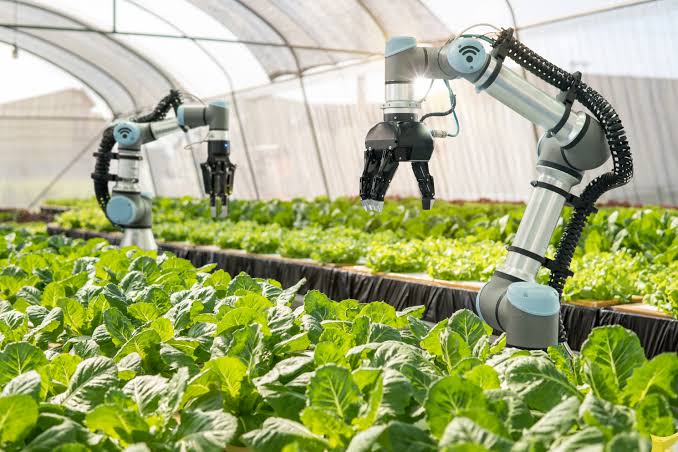Agriculture with Artificial Intelligence
Artificial Intelligence (AI) is revolutionizing various industries. Agriculture is no exception. With global population projected to reach nearly 10 billion by 2050 need for efficient, sustainable and high-yield agricultural practices has never been more critical. AI through precision farming and crop yield optimization, is poised to meet these challenges. By transforming traditional farming methods into highly sophisticated data-driven operations. This essay explores the significant impact of AI in agriculture. Focusing on how precision farming and crop yield optimization are reshaping industry.
The Role of Precision Farming
Precision farming also known as precision agriculture, leverages AI and other advanced technologies to monitor and manage crops with unprecedented accuracy. This approach involves use of sensors GPS, satellite imagery and drones. They gather real-time data on various factors. Such as soil health weather conditions and crop growth. AI algorithms then analyze this data to provide actionable insights. Enabling farmers to make informed decisions about planting, irrigation fertilization and pest control.
Efficient Resource Use
One of primary benefits of precision farming is efficient use of resources. Traditional farming methods often rely on uniform treatment. This can lead to overuse or underuse of water fertilizers and pesticides. AI-driven precision farming, on other hand allows for site-specific management. This ensures each section of field receives optimal amount of resources based on its unique conditions. This not only maximizes crop yields. But also minimizes environmental impact by reducing waste. And preventing soil degradation.
Crop Monitoring and Disease Detection
AI-powered tools are also instrumental in crop monitoring and disease detection. For instance, drones equipped with multispectral cameras can capture detailed images of crops, which AI algorithms analyze to detect early signs of stress, disease, or pest infestations. By identifying problems at an early stage, farmers can take targeted action to mitigate damage, thereby protecting their crops and securing their yields. This proactive approach contrasts sharply with traditional methods, where issues are often detected too late, leading to significant losses.
Yield Prediction and Optimization
In addition to real-time monitoring, AI is enhancing crop yield prediction and optimization. Machine learning models can analyze historical data alongside current conditions to forecast future yields with high accuracy. These predictions help farmers plan their operations more effectively, from determining the best planting times to optimizing harvest schedules. By anticipating yield outcomes, farmers can better manage their supply chains, reduce waste, and increase profitability.
Soil Health Management
AI also plays a crucial role in soil health management. Healthy soil is the foundation of productive agriculture, but assessing and maintaining soil quality can be challenging. AI technologies, such as soil sensors and satellite imagery, provide detailed insights into soil composition, moisture levels, and nutrient content. Machine learning algorithms then interpret this data to recommend specific interventions, such as adjusting pH levels or applying particular fertilizers, to enhance soil health and boost crop productivity.
Automated Machinery and Robotics
Another significant application of AI in agriculture is in automated machinery and robotics. Autonomous tractors, harvesters, and planting machines equipped with AI systems can perform tasks with high precision and efficiency. These machines use computer vision and GPS technology to navigate fields, plant seeds at optimal depths, and harvest crops without damaging them. Automation not only increases operational efficiency but also addresses labor shortages, a growing concern in the agricultural sector.
Smart Irrigation Systems
Furthermore, AI is facilitating the development of smart irrigation systems. Water scarcity is a pressing issue in many parts of the world, making efficient water use in agriculture essential. AI-driven irrigation systems use data from soil moisture sensors, weather forecasts, and crop models to deliver the exact amount of water needed at the right time. This precision irrigation minimizes water waste, reduces costs, and ensures that crops receive adequate hydration, even in drought-prone regions.
Impact on the Food Supply Chain
AI’s impact on agriculture extends beyond individual farms to the broader food supply chain. By integrating AI into logistics and distribution, the agricultural sector can improve efficiency and reduce food waste. For example, AI algorithms can optimize transportation routes, predict demand patterns, and manage inventory levels, ensuring that fresh produce reaches consumers promptly
